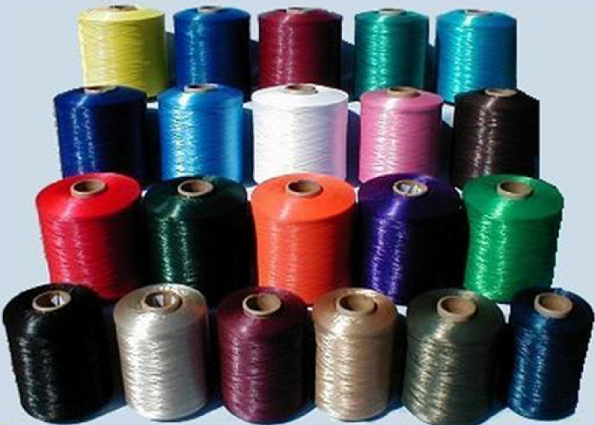India’s ‘Make in India’ faces hurdles as QCQ is strangling trade

India’s ambitious ‘Make in India’ initiative, aimed at boosting domestic manufacturing and reducing dependency on imports, is facing serious roadblocks as the implementation of Quality Control Orders (QCOs) stifles export competitiveness. While these measures were originally designed to protect consumers by ensuring high product standards, their rapid expansion has led to concerns about excessive bureaucratic control, particularly in the man-made fiber (MMF) sector.
The rise of QCOS and the threat of protectionism
A recent analysis published in the Business Standard highlights the rise in the number of products covered under QCOs. From a modest few dozen in 2011, the count has skyrocketed to nearly 775 by 2024, spanning over 100 sectors. This expansion signals a worrying trend toward protectionism, reversing years of economic liberalization.
The MMF sector, a crucial component of India’s textile industry, has been disproportionately affected. With QCOs now covering nearly 100 per cent of MMF imports, industry experts warn that these restrictions are choking the sector’s ability to source essential materials, thereby weakening its global competitiveness.
MMF sector hit hard by policy shifts
The MMF sector, which relies heavily on imports of polyester and viscose, is particularly vulnerable to regulatory shocks. These fibers are fundamental to the production of garments, especially for major global brands. However, recent policy shifts, including the imposition of QCOs, have severely disrupted the supply chain.
Initially, import restrictions kept foreign MMF supplies low. In 2022, a tariff reduction briefly improved access to foreign suppliers, giving a much-needed boost to apparel manufacturers. But the implementation of QCOs soon after negated these benefits, causing a sharp decline in MMF imports and, subsequently, in India’s global MMF apparel exports.
"Policy whiplash" is how an industry expert describes the situation. "First, tariffs were reduced, which was a welcome move, but then QCOs were imposed, effectively negating any benefit. It's like taking two steps forward and three steps back."
The compliance burden on businesses
One of the biggest challenges posed by QCOs is the cumbersome and costly compliance process. The regime mandates that foreign suppliers obtain certification from the Bureau of Indian Standards (BIS). This involves on-site inspections of overseas factories, assessment of production processes, and rigorous testing procedures.
"The certification process is cumbersome and time-consuming," says a representative from a garment exporters' association. "Small and medium-sized enterprises (SMEs) are particularly affected as they lack the resources to navigate this bureaucratic maze. In some cases, it’s not clear why the Indian standards are better or different from the international standards we already adhere to."
International concerns have also emerged. Indonesia has formally raised objections at the World Trade Organization (WTO) over India’s certification requirements for its viscose exporters, raising the specter of trade disputes.
Economic consequences of protectionist policies
The broader economic implications of QCOs are alarming. India’s share of global MMF apparel exports had been growing steadily but suffered major setbacks after the government significantly increased import tariffs in 2017. While the tariffs were rolled back in 2022, the introduction of QCOs continued to damage the industry, undermining India’s position in the global textile market.
"The cost of renewed protectionism is being paid in terms of exports, economic growth, and jobs," the Business Standard report states. The garment sector, which is labor-intensive, faces major job losses, while the capital and energy-intensive MMF production sector gains a monopolistic advantage.
The Ripple Effect: QCOs beyond textiles
The impact of QCOs is not limited to the textile industry. The Business Standard report points to their increasing use in other sectors, such as footwear and solar panels. In the solar industry, for example, QCOs have led to higher production costs, hindering India’s transition to renewable energy.
Critics argue that the widespread use of QCOs signals a return to the restrictive "license-quota-permit Raj" of pre-liberalization India. The Business Standard warns that these policies could lead to increased economic nationalism, arbitrary interventions, and crony capitalism, benefiting a select few while stifling competition and innovation.
The call for reform
Industry voices and trade analysts strongly advocate for the removal of QCOs, emphasizing their detrimental impact on India's export sector. "Indian exporters are already facing stiff challenges in the global market. The last thing they need is to be hamstrung by domestic policies," the report states. "QCOs must be removed immediately; it is a matter of survival for this vital sector of the Indian economy."
As India strives to position itself as a global manufacturing hub, policymakers must carefully reassess the role of QCOs. Instead of rigid protectionism, a balanced approach that fosters competitiveness while maintaining quality standards is crucial to ensuring the long-term success of the ‘Make in India’ initiative.
